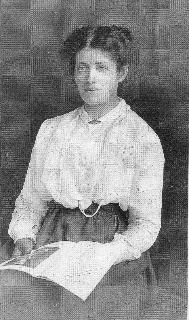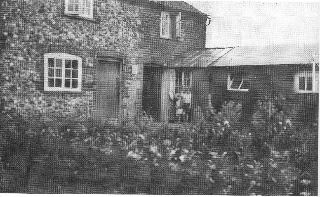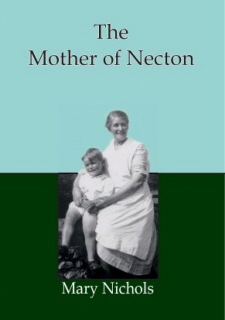- Farewell
- Introduction
- All Mary's Books
- Coming Soon
- More about Mary Nichols
- Links
- Search
- Contact Me
- Acknowledgments
- Blogs
- Most recent blogs
- Archive
- 2014
- 2013
- Building family anecdotes into a novel
- Collective Noun for a group of Romantic Novelists
- Village Brickmaking
- Writing Historical Novels for Mills & Boon
- Plot and Character in Historical novels
- Norfolk roots
- Developing that first Idea
- A Weekend to Remember
- Writing and Selling historical novels
- Using the Second World War as a setting
- What makes a good novel
- Doing the Research
- Spring in the Garden
- Historical novels: getting the setting right
- Writing Novels set against an historical background
- Mothers' Day
- Romantic Novelists' Association Annual Awards
- Shortlisted
- Do you need to be a historian to write historical novels
- 2012
Norfolk roots
Mon, 16/09/2013 - 10:21 — Mary

Although I have lived in Cambridgeshire many years, my roots are in Norfolk and I still have family there whom I visit from time to time. I have just come back from one such visit and, as it always does, it threw me back into the past and set me thinking and talking of my childhood. My brother and sister and I used to spend our school holidays with my grandparents in Necton, and during the second world war we were there even longer.
Grandma was an indomitable lady who was midwife, nurse and confidante to the whole village from before the first World War until the coming of the National Health Service in 1948. She was not unique in what she did, there were thousands of women doing the same job. Unqualified, they were referred to as 'the handywoman' or 'the woman you sent for.' And when she was sent for, she always went, whatever the time of day or night.
She lived with my grandfather and a maiden aunt on a small-holding with no electricity, gas, main drains, sewerage or telephone, just four walls and a roof and a few acres of land. The loo was down the garden, the bath hung on a hook on the backplace wall and the cooking was done on the kitchen range When it got dark we sat by the light of an oil lamp and lit our way to bed with a candle.
Grandma was a fund of stories, told when something jogged her memory. When she began with 'That time o'day,' she wasn't talking about hours and minutes but times gone by and I knew there was a story coming, told in her broad Norfolk dialect.
She told me she had run away from home when she was eight. Her mother had died in childbirth and as the eldest of four girls, she was expected to help run the home. 'I didn't reckon a lot to that,' she told me. What she didn’t tell me was that her father brought another woman into the home, which might have had some bearing on it. She walked the four miles from Swaffham to Necton where her grandparents had a brick making business. She was allowed to stay on condition she helped make the bricks. She never went to school again.
I heard about my grandfather's work as a shepherd, their disastrous wedding day, my mother's illness as an infant, helping the doctor take out a child's tonsils on the window sill of a cottage during an earthquake, about the first World War and the Zeppelins. I soaked them all up.
When she died in 1978, the Eastern Daily Press reported it under the headline: THE MOTHER OF NECTON DIES AT 99, a name she acquired because of the number of babies she had delivered in the village.
The church was packed for her funeral and looking back from my seat at the front I wondered how many of the congregation had stories they could tell about her and I decided to ask and write the answers down. My uncle, who was her executor, had some documents, letters, bills and snapshots. I contacted all my cousins and got their stories and pictures too. Fitting identities and dates to these was like a giant jigsaw and I never did get all the pieces to fit. How many of us, I wonder, have boxes of photos and snapshots we've kept but never labelled. I had a pile of them: children without names or ages, people posing in fancy dress, at parties, at work. 'Who is that?' we ask when something prompts us to fetch out the box and rummage through it. Is it Mum or Aunt Audrey? Is that Dad or his brother? And who is on this group picture of an outing. Where were they going? When? Why did Grandad lose his job and why did they move in with his mother in the tiny cottage? And why did Grandad disapprove so strongly of Mum marrying Dad? How did the reconciliation come about? Why did Great Aunt have three sons but never married?
It is such a pity we don't label pictures when we take them or talk more to our parents and grandparents about their lives. My grandmother told me a lot but I wish I had asked more questions. Now everyone of that generation is long gone and their stories are history, but even so new tales sometimes emerge when people have contacted me as a result of reading The Mother of Necton, tales I would like to have included.
Researching for that book motivated me to do something about the box of photographs I had and one Christmas when I had nothing else to do, I fetched it out and began sorting and labelling, though I needed the help of family members to do some of it. The result is two big albums with the pictures in chronological order, all with names and dates. Now whenever I take, or am given, a picture it goes in the album suitably annotated. I like to think my children, grandchildren and great-grandchildren might look at it after I have gone and learn about what, for them, will be times gone by.
 The hardback of Mother or Necton is long out of print but an updated version in paperback is available from Amazon or direct from the publisher: larks.press@btinternet.com
The hardback of Mother or Necton is long out of print but an updated version in paperback is available from Amazon or direct from the publisher: larks.press@btinternet.com
My next blog will be about 'the woman you sent for'.
